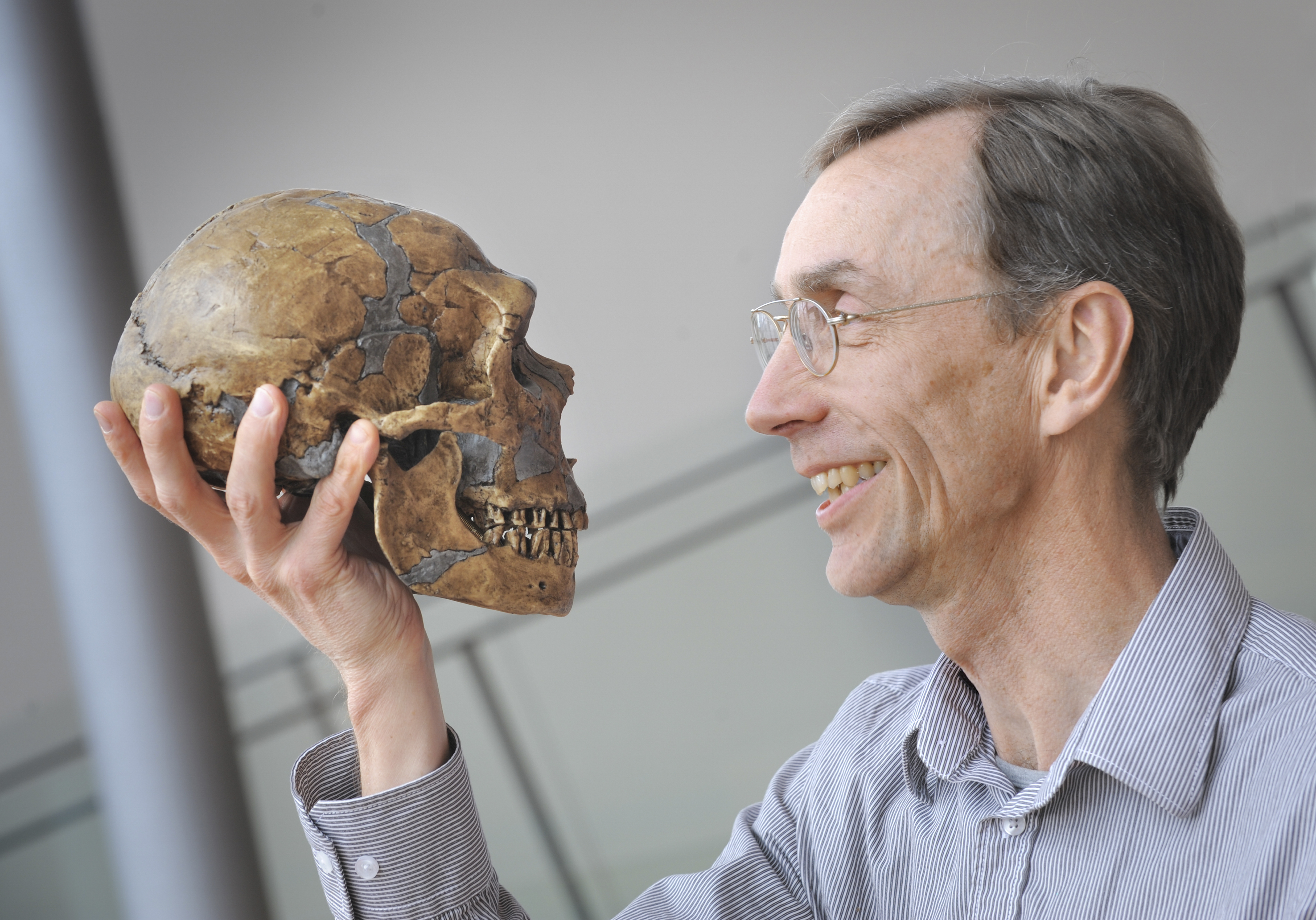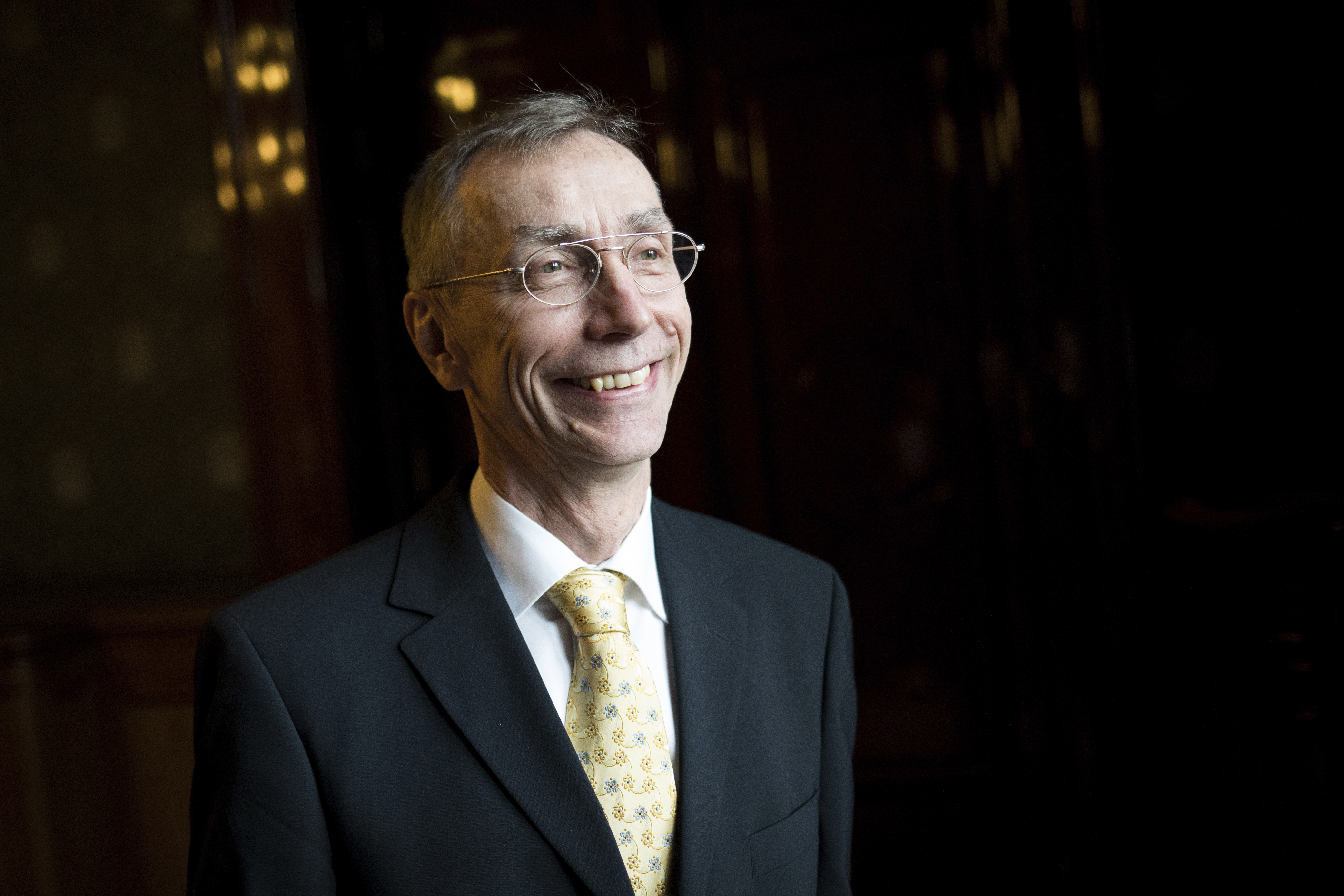Three scientists were jointly awarded this year's Nobel Prize in chemistry on Wednesday for developing a way of "snapping molecules together" that can be used to design better medicines.
Americans Carolyn R. Bertozzi and K. Barry Sharpless and Danish scientist Morten Meldal were cited for their work on click chemistry and bioorthogonal reactions, which are used to make cancer drugs, map DNA and create materials that are tailored to a specific purpose.
"It's all about snapping molecules together," said Johan Aqvist, a member of the Royal Swedish Academy of Sciences that announced the winners Wednesday at the Karolinska Institute in Stockholm, Sweden.
https://twitter.com/NobelPrize/status/1577596410253508608
Sharpless, 81, who previously won a Nobel Prize in 2001 and is now the fifth person to receive the award twice, first proposed the idea for connecting molecules using chemical "buckles" around the turn of the millennium, said Aqvist.
"The problem was to find good chemical buckles," he said. "They have to react with each other easily and specifically."
Meldal, 68, based at the University of Copenhagen, Denmark, and Sharpless, who is affiliated with Scripps Research, California, independently found the first such candidates that would easily snap together with each other but not with other molecules, leading to applications in the manufacture of medicines and polymers.
Bertozzi, 55, who is based at Stanford University in California, "took click chemistry to a new level," the Nobel panel said.
https://twitter.com/NobelPrize/status/1577597727298539520
She found a way to make click chemistry work inside living organisms without disrupting them, establishing a new method known as bioorthogonal reactions. Such reactions are now used to explore cells, track biological processes and design experimental cancer drugs that work in a more targeted fashion.
Bertozzi said she was "absolutely stunned" to receive the prize.
"I'm still not entirely positive that it's real, but it's getting realer by the minute," she said.
Meldal said he received a call from the Nobel panel about half an hour before the public announcement.
"They (…) told me not to tell anyone. So I sat inside my office and I shook my pants with fright," he told The Associated Press. "This is a huge honour."
Meldal started out as an engineer. "But I wanted to understand the world so I thought chemistry would give me the solutions," he told the AP.
Nobel Prize in physics awarded to trio for work in quantum mechanics
Three scientists jointly won this year's Nobel Prize in physics on Tuesday for their work on quantum information science that has significant applications, for example in the field of encryption.
Alain Aspect, John F. Clauser and Anton Zeilinger were cited by the Royal Swedish Academy of Sciences for discovering the way that particles known as photons can be linked, or "entangled", with each other even when they are separated by large distances.
"Quantum information science is a vibrant and rapidly developing field," said Eva Olsson, a member of the Nobel committee. "It has broad and potential implications in areas such as secure information transfer, quantum computing and sensing technology."
https://twitter.com/NobelPrize/status/1577234271546200064
"Its origin can be traced to that of quantum mechanics," she said. "Its predictions have opened doors to another world, and it has also shaken the very foundations of how we interpret measurements."
Speaking by phone to a news conference after the announcement, Zeilinger said he was "still kind of shocked" at hearing he had received the award.
"But it's a very positive shock," said Zeilinger, 77, who is based at the University of Vienna.
Clauser, Aspect and Zeilinger have figured in Nobel speculation for more than a decade. In 2010 they won the Wolf Prize in Israel, seen as a possible precursor to the Nobel.
While physicists often tackle problems that appear at first glance to be far removed from everyday concerns — tiny particles and the vast mysteries of space and time — their research provides the foundations for many practical applications of science.
Last year the prize was awarded to three scientists — Syukuro Manabe, Klaus Hasselmann and Giorgio Parisi — whose work has helped to explain and predict complex forces of nature, thereby expanding our understanding of climate change.
MORE TO COME
Nobel Prize in medicine for Swede who unlocked secrets of Neanderthal DNA
Swedish scientist Svante Paabo won the Nobel Prize in medicine on Monday for discoveries in human evolution that unlocked secrets of Neanderthal DNA that helped us understand what makes humans unique and provided key insights into our immune system, including our vulnerability to severe COVID-19.
Techniques that Paabo spearheaded allowed researchers to compare the genome of modern humans and that of other hominins — the Denisovans as well as Neanderthals.
"Just as you do an archeological excavation to find out about the past, we sort of make excavations in the human genome," he said at a news conference held by Max Planck Institute for Evolutionary Anthropology in Leipzig.
While Neanderthal bones were first discovered in the mid-19th century, only by understanding their DNA — often referred to as the code of life — have scientists been able to fully understand the links between species.
This included the time when modern humans and Neanderthals diverged as a species, around 800,000 years ago.
"Paabo and his team also surprisingly found that gene flow had occurred from Neanderthals to Homo sapiens, demonstrating that they had children together during periods of co-existence," said Anna Wedell, chair of the Nobel Committee.
This transfer of genes between hominin species affects how the immune system of modern humans reacts to infections, such as the coronavirus. People outside Africa have 1-2 per cent of Neanderthal genes. Neanderthals were never in Africa, so there's no known direct contribution to people in sub-Saharan Africa.
https://twitter.com/NobelPrize/status/1576876450812088320
Paabo and his team managed to extract DNA from a tiny finger bone found in a cave in Siberia, leading to the recognition of a new species of ancient humans they called Denisovans.
Wedell called it "a sensational discovery" that showed Neanderthals and Denisovans were sister groups that split from each other around 600,000 years ago. Denisovan genes have been found in up to 6 per cent of modern humans in Asia and Southeast Asia, indicating interbreeding occurred there too.
"By mixing with them after migrating out of Africa, Homo sapiens picked up sequences that improved their chances to survive in their new environments," Wedell said. For example, Tibetans share a gene with Denisovans that helps them adapt to high altitude.
Paabo said he was surprised to learn of his win, and at first thought it was an elaborate prank by colleagues or a call about his summer home in Sweden.
"So I was just gulping down the last cup of tea to go and pick up my daughter at her nanny where she has had an overnight stay, and then I got this call from Sweden," he said in an interview on the Nobel Prizes homepage. "I thought, 'Oh the lawn mower's broken down or something'" at the summer home.
He also mused about what would have happened if Neanderthals had survived another 40,000 years.
"Would we see even worse racism against Neanderthals, because they were really in some sense different from us? Or would we actually see our place in the living world quite in a different way when we would have other forms of humans there that are very like us but still different," he said.
Paabo, 67, performed his prizewinning studies at the University of Munich and at the Max Planck Institute. During the celebrations after the news conference in Leipzig, colleagues threw him into a pool of water. Paabo took it with humour, splashing his feet and laughing.
Paabo's father, Sune Bergstrom, won the Nobel prize in medicine in 1982, the eighth time the son or daughter of a laureate also won a Nobel Prize. In his book "Neanderthal Man: In Search of Lost Genomes," Paabo described himself as Bergstrom's "secret extramarital son" — something he also mentioned briefly on Monday.
https://twitter.com/NobelPrize/status/1576867617536503808
He father took a "big interest" in his work, he said, but it was his mother who most encouraged him.
"The biggest influence in my life was for sure my mother, with whom I grew up," he said in the Nobel interview. "And in some sense it makes me a bit sad that she can't experience this day. She sort of was very much into science, and very much stimulated and encouraged me through the years."
Source: 9News




